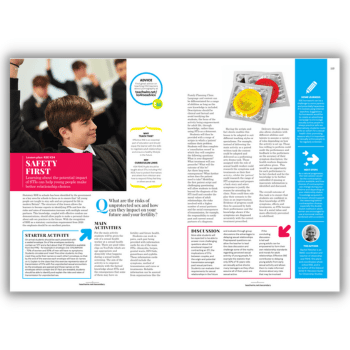Some vulnerable young people need distance from teachers

As heartbreaking as it may seem, some vulnerable young people need distance, not hot chocolate, from the teachers who care about them, says Jo Bardsley…

- by Jo Bardsley

Every morning in our behaviour intervention unit we offered Tamara a cup of hot chocolate; every morning she accepted one and then she pointedly left it on her desk to grow cold.
I didn’t pour the rejected drink away every lunch time, because sometimes she would do this herself, looking me right in the eye as she did so.
Tamara was very intelligent, quick at grasping new concepts and recalling old ones with ease. She had ambition and drive; she said that she was just marking time at school until she could go to university. She was very popular with her peers, although she could be extremely cruel to them at times.
Each interaction Tamara had with adults was designed to repel. The action was as large and loud as it needed to be; in class she would shout and walk out; in a smaller, less-energised setting, she would quietly demean the adults by questioning every decision and pouncing on every mistake.
Any amount of time in Tamara’s presence left me feeling drained and useless, doubting my own skills and having to remind myself that I was no longer an insecure teenager.
Instinctive mistrust of adults
It was clear that as an infant Tamara hadn’t had sustained and sensitive caring from an adult. In her earliest experience, when she was learning about herself and the world, she had learned that adult attention was unpleasant and to be avoided.
Tamara had no memories of her mother, who left when she was a baby. Her father did his best; he knew he should not hit his children, so instead he stopped speaking to them when they crossed his boundaries.
Tamara’s confrontational behaviour and aggression towards teachers was a result of her instinctive mistrust of adults. The passive, dependent relationship of student to teacher was intolerable to her. This is why she would deliberately alienate her teachers.
A caring approach from an adult only ever appeared hypocritical to her, a ruse designed to allay her instincts to effect even greater harm; so the more understanding we tried to be, the more fearful and consequently aggressive she became.
In our behaviour intervention unit, the physical proximity and possibility of emotional vulnerability were very difficult for Tamara. Her rejection of the hot chocolate was a rejection of the care we offered.
Her responses to us varied from insulting us to shutting down with her head on a desk. She liked the silence of the isolation room and would deliberately get sent there at least once every couple of days, until we pointed out that this was prolonging her time in the unit.
Her final solution was to lose herself in her work, completing huge quantities of high quality material.
Keeping a safe distance
Eventually, after weeks of rejecting our hot chocolate, Tamara drank a cup. I calmly gathered up the empty mug. It was the only indication of trust we ever got from her.
Tamara, like other students with avoidant behaviour towards adults, learnt through completing tasks rather than interacting with teachers, so supporting Tamara back in mainstream classes meant asking staff to allow her to access the work as independently as possible.
We suggested that all instructions were given in written form, on the board or in work sheets. If Tamara needed extra guidance, pairing her with an able peer was preferable to teacher intervention.
In order to create as much distance between Tamara and the teacher, we recommended that she be sat at the very back of a room.
We also gave Tamara some written information on people with similar early experiences and how to access support when she was ready.
She never took advantage of our offer while she was at school, but the strategy of task oriented independent learning was successful and she did well in her GCSEs.
Eventually Tamara went to college for her A levels, a setting which suited her need for autonomy.
Jo Bardsley coordinates therapeutic interventions and teaches English in an inner city London school. She has worked in a number of different countries, including the USA and Togo in West Africa. She blogs at compassionateteacher.home.blog.











